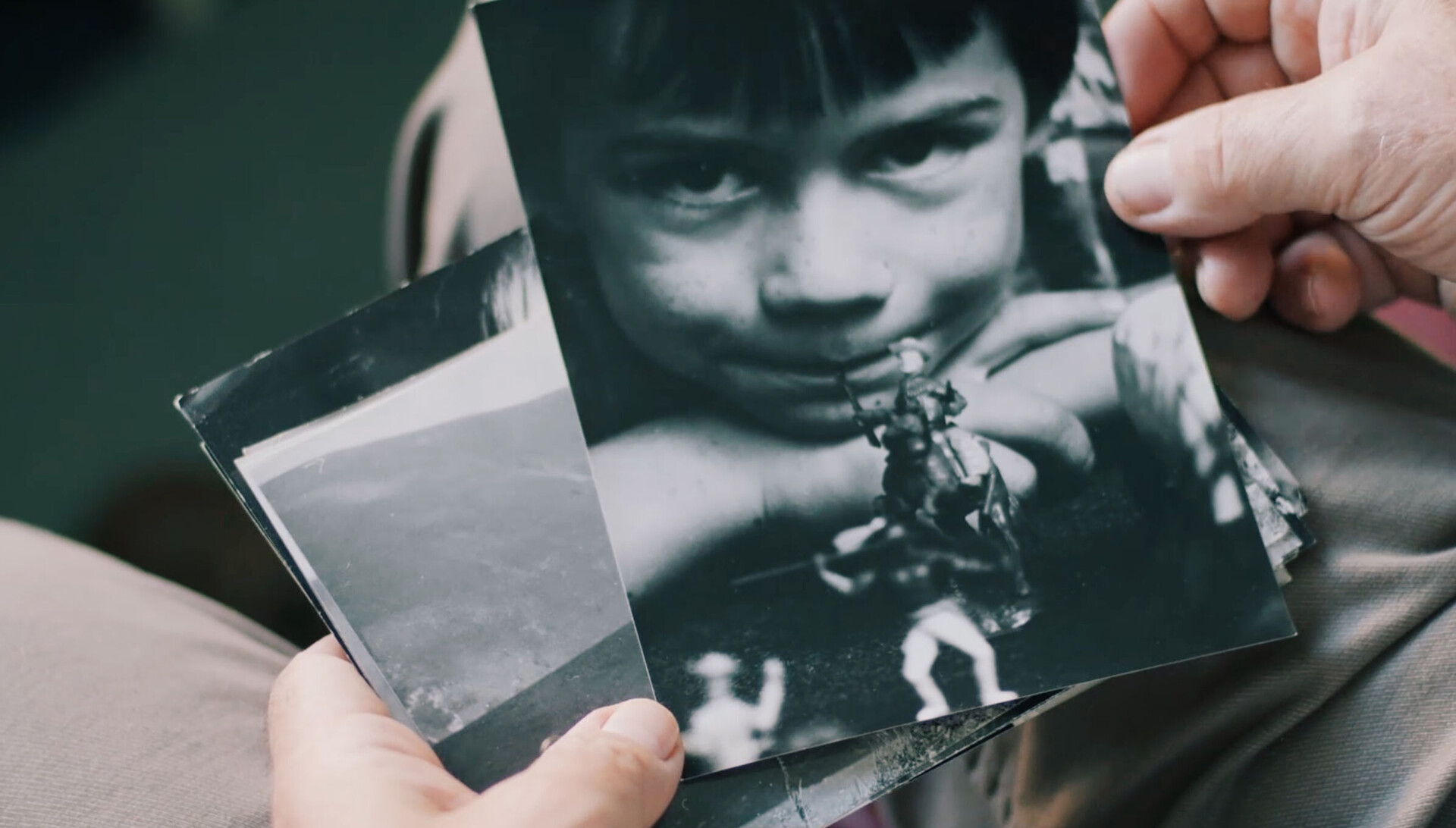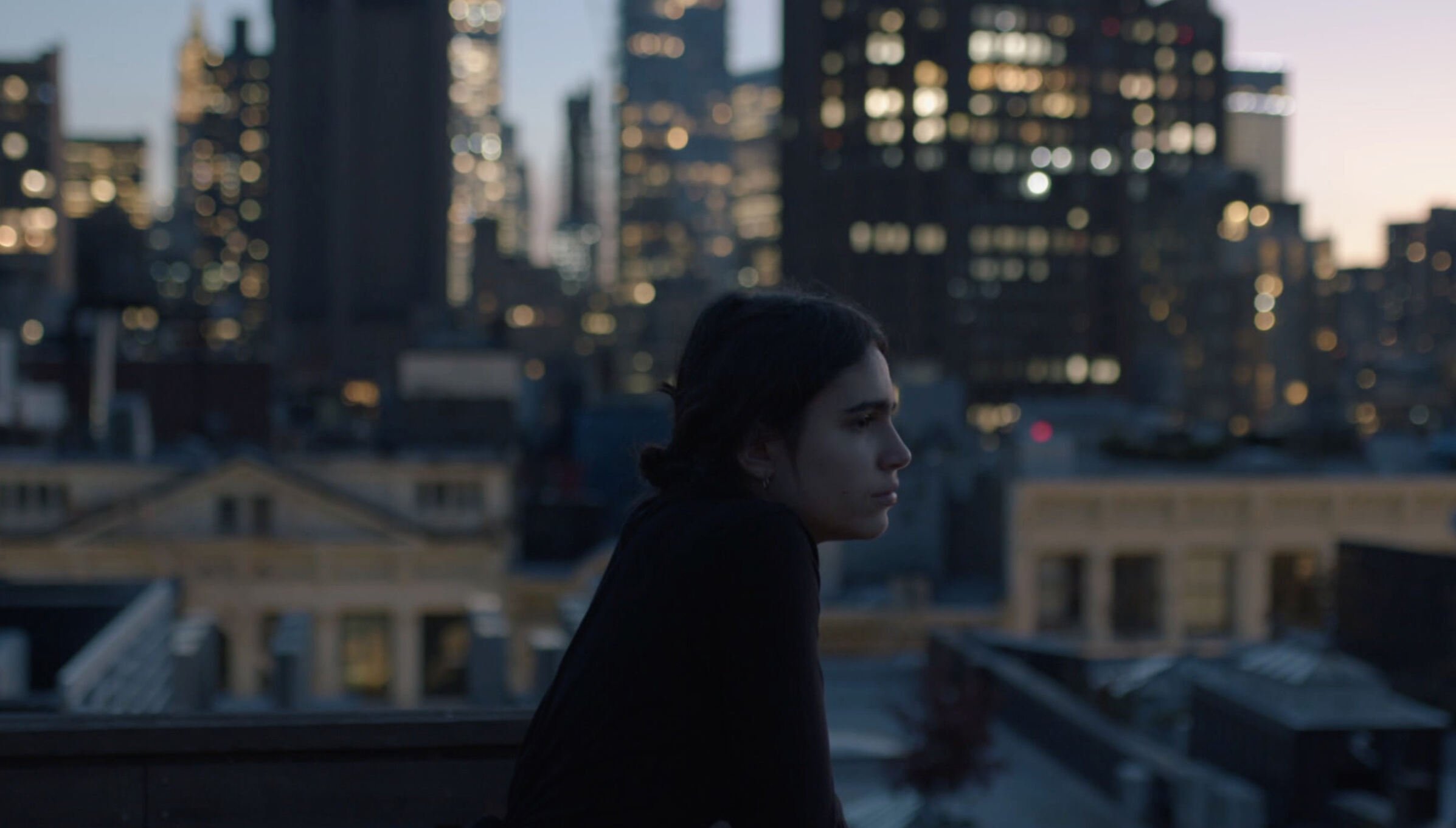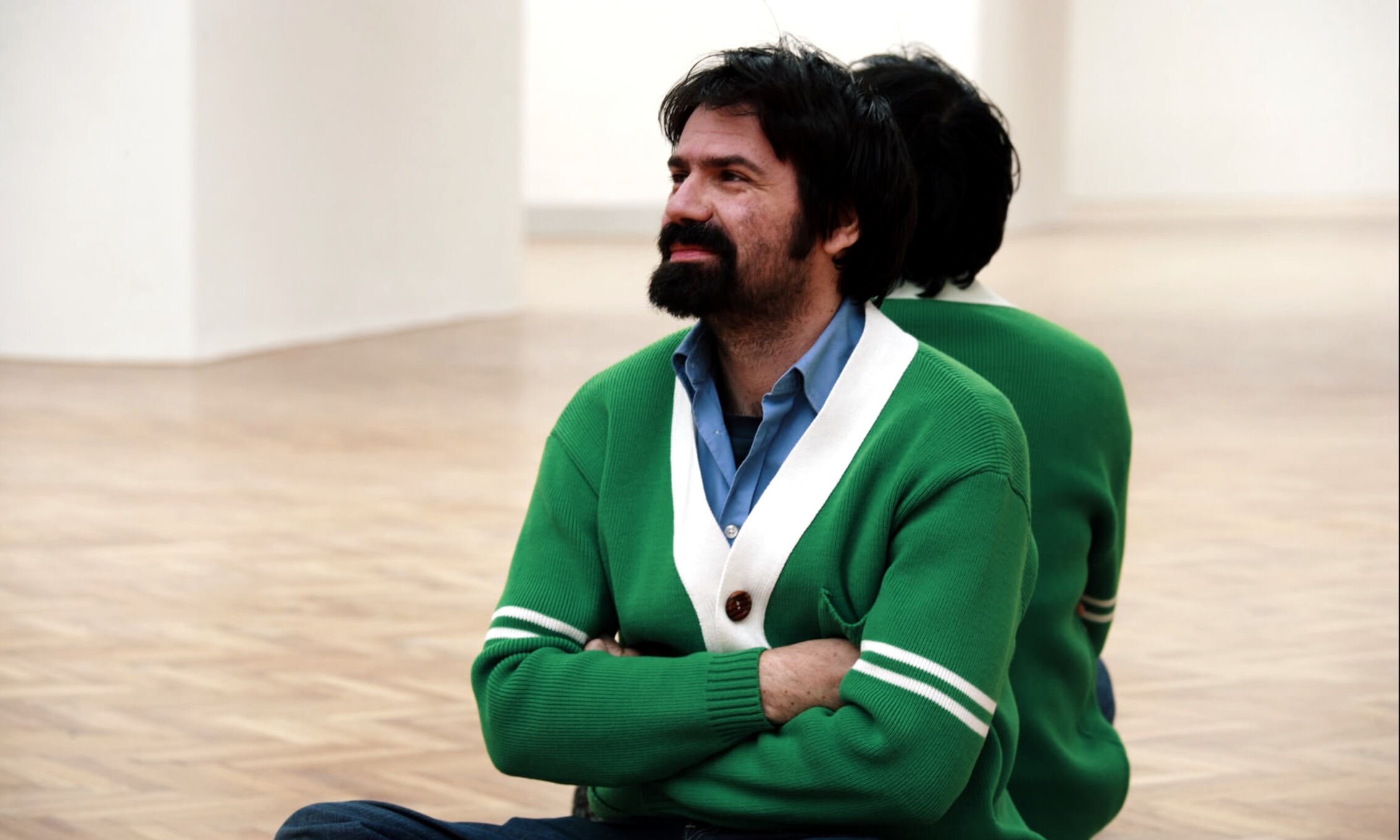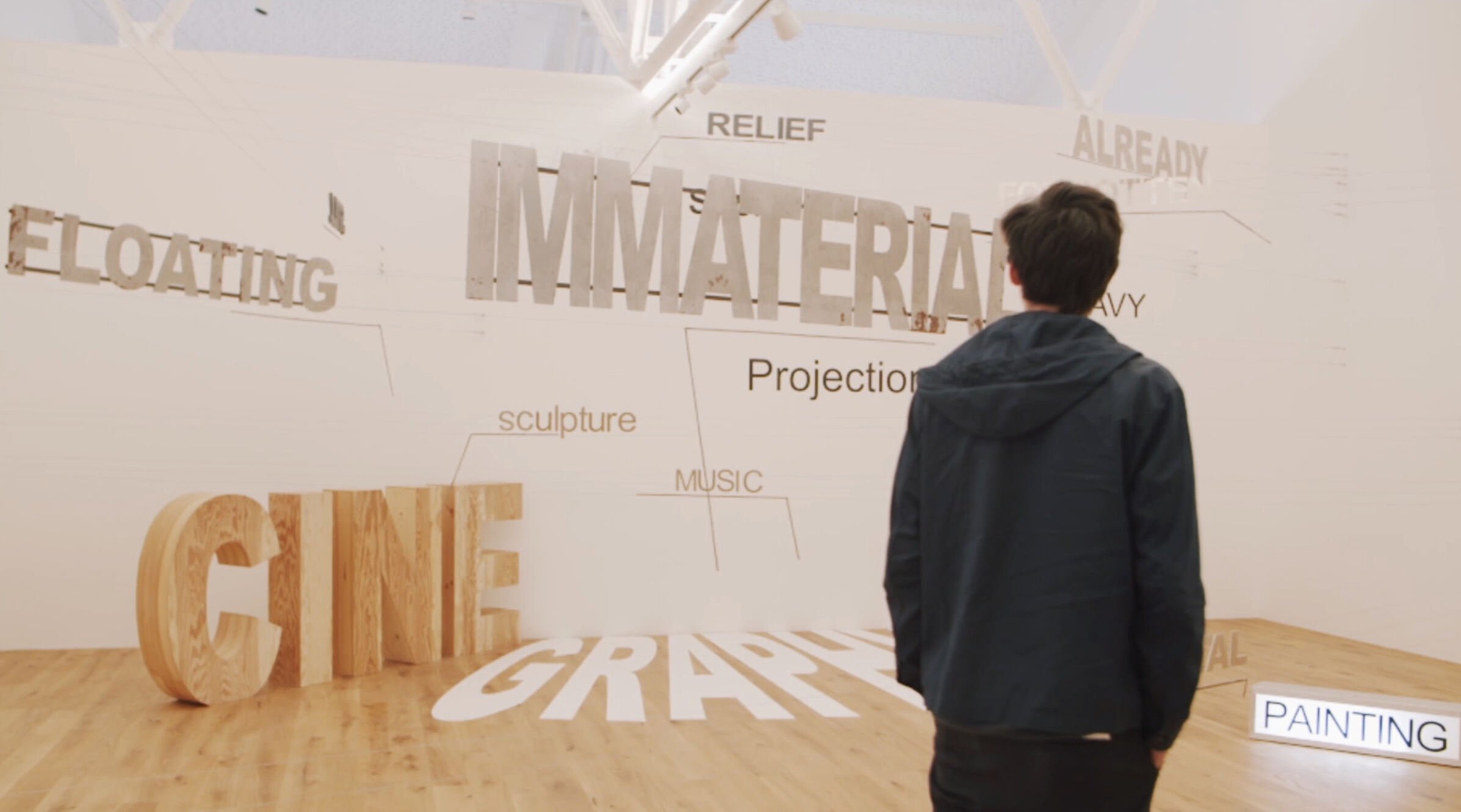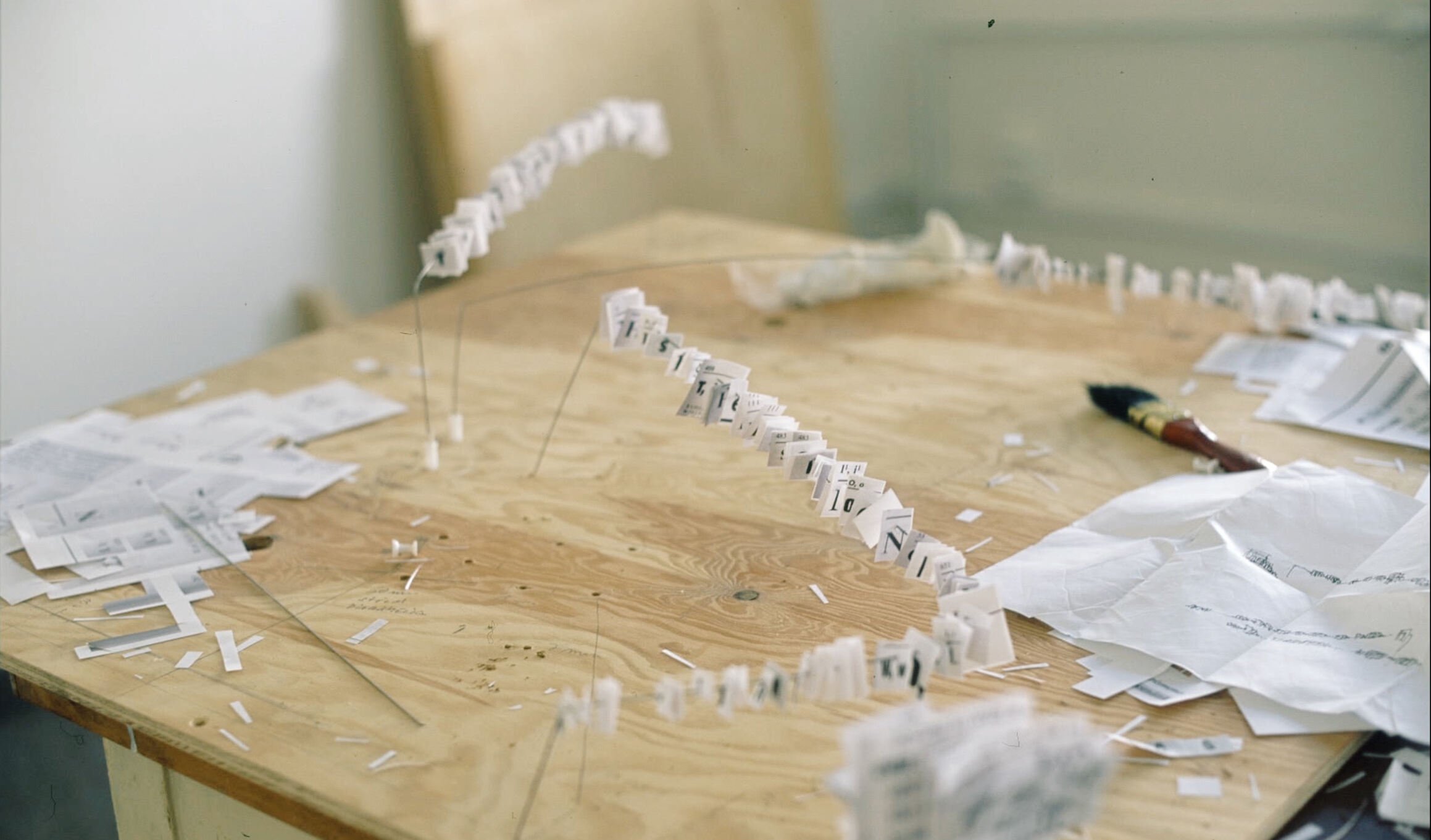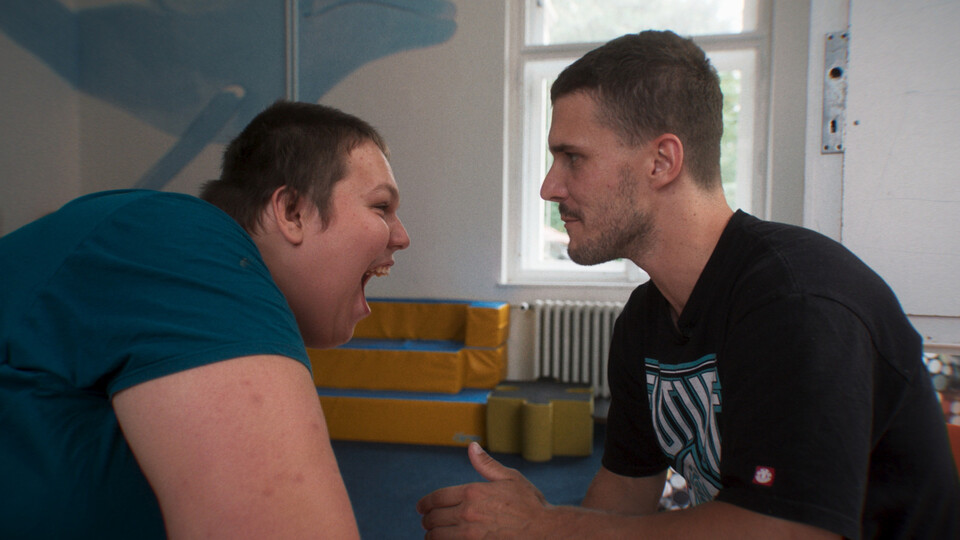You Will Never See It All: A journey from personal pain to unexpected connections
The film You Will Never See It All, dedicated to the artist Ján Mančuška, who died before his time, won the award for best debut at this year’s Ji.hlava International Documentary Film Festival. “We have a tendency to slip into automatisms, and Ján was constantly disrupting these automatisms,” says the film’s director, Štěpán Pech. Why did he choose the figure of Ján Mančuška? Who was Mančuška to him? And how did he go about making this film, which involved the participation not only of art historians from all over the world but above all Mančuška’s family?
Where did your relationship with Ján Mančuška originate?
I knew Ján since I was a kid – by hearsay. I was even at his wedding. To me, he was always this distant figure who radiated a powerful magnetism. When I was studying photography at the Academy of Arts, Architecture & Design in Prague, I decided to ask him if I could be his assistant. He accepted my offer, and I assisted him for about three years.
Why did you know him since your childhood? Were your families associated somehow?
My father was at one time the best friend of the father of Ján’s half-brother, so my father knew Ján’s mother quite well too. Working for Ján was a great learning experience for me. He was fairly strict with me, which I didn’t take too well back then during my most punk period. But he was also a lot of fun; sometimes he’d laugh until his knees buckled and he fell to the floor. Other times, he’d check himself out of the hospital after a treatment and come into the studio looking white as a ghost. On days like those, I told myself there was no way he could survive like that. He was extremely hardworking, to the point that I think his lifestyle would kill a perfectly healthy person. So, from my point of view the shadow of death was present in his life for a long time. When the news came that he had died, I remember realising that I couldn’t grieve. I was strangely stuck. And it wasn’t until years later that I decided to process it all through a film.
“The shadow of death was present in his life for a long time.”
So, the film about him was your way of grieving?
I think that my defiance of the fact that he died is in the DNA of the film. It’s an attempt to re-stage or update his work, to make him present again. It dawned on me that I had refused to accept the authority of his passing. I was still just trying to snatch him away from death somehow. In retrospect, I think I saw him as my teacher, and I simply wanted one last lesson from him. You could say that the film was ultimately a way for me to come to terms with his death. At some point later on, I realised that he had been something of a father figure to me. My father died when I was sixteen, so for a long time after that I had a tendency to put someone in that role who I could further relate to. Ján was important to me, and like my father, he left my life.
Has anyone replaced him as a father figure, or did you manage to find closure within yourself with this film?
I don’t think I enlisted anyone else for the role after that, but situationally, the father figure is definitely coming back. After all, it is an archetype.
So, figuratively speaking, were you able to mourn your own father through the film as well?
I think what was more important was a new, positive, contemplative encounter with a paternal authority. As my relationship with my father was severed at the height of adolescent defiance, I felt a great emptiness and a lot of unfinished business. I think my relationship with my father and his legacy has improved significantly as a result of making this film.
In the film you exposed not only yourself to this process but also Mančuška’s adolescent children. It must have been very painful for them and thus a big responsibility for you. How did you work through it together?
The fundamental ethic of the film is rooted in the fact that the whole process was to be geared primarily to the benefit of Ján Mančuška’s children. Their needs had to clearly prevail over the needs of the film. This was understood and agreed upon by everyone involved, and I respected it throughout the entire shoot. The family was given the right of final editing – in essence the power of veto. It was important to me that the children could use this space that was being created to get to know their father better. We were meant to draw closer and then, ideally, separate again, which in the end actually did occur during the final phase.
Ján’s son Vojta came to the conclusion that he does not have to be defined and influenced by his father’s legacy, that he can determine the beginning of his own life. From my perspective, I think this may be a bit of an illusion, but at the same time it’s a necessary illusion that we all need in order to find our freedom. This is actually something we all go through in our relationship with our parents – the stage where we try to reject them. It’s only later that we realise how much their legacy defines us and that we may be working through it on a different level. I think one thing that aided Vojta to this end was the theme of freedom, which was very important in Ján’s work. There’s a moment when a father passes his experience on to his son through the works he left behind, and that was crucial for me.
The intention was for the film to bring together two planes of Mančuška’s immortality: his work and his children. And these two planes interacted with each other. For his children, his work can be a source of continuous self-reflection and transcendence. Ján Mančuška expanded the spiritual space for his entire audience but most of all for his children, because they have a very personal relationship to his work. For them, his work is also a source of personal and intimate interactions.
“Ján wanted his works to be accessible to everyone.”
And is the topic of Ján Mančuška now a closed chapter for you?
It is definitely not a closed chapter, and I don’t think it ever will be. I believe this is a lifelong relationship. For example, at the suggestion of the dramaturge Lukáš Kokeš, I considered adding a voiceover to the film with my personal memories, but since I was also trying to capture the essence of Ján’s approach with the entire film, I had to dismiss that option.
For him, it was all about universality, which he achieved through depersonalisation, among other things. All of his works are based on minor personal experiences, but eventually there comes a moment of depersonalisation, with generosity toward the viewer. Ján wanted his works to be accessible to everyone, so that anyone could be active in the creation of a work’s meaning. This required him to be restrained in his personal involvement. Thus, to cram myself into the film as a subject logically seemed a bit vulgar to me. I needed, conversely, to step back.
That was another of Ján’s lessons for me – to learn not to filter everything through myself. To give space, to not be so specific, to not think that one single view is definitive but on the contrary to realise that it is just one view among many. I got much closer to Ján’s work while filming, and it taught me to pay more attention to the everyday – to take from it the impetus to think and to create.
I’m still learning from him the playfulness and cheerfulness that he was able to maintain even when he was really sick. What I would like to learn from him but cannot – and perhaps no one who isn’t suffering from a life-threatening illness can – is not to take anything in life for granted.
For him, it wasn’t granted that anything exists in the world at all. And certainly his own existence in the world wasn’t a given. He saw everything through the prism that nothing is just so. We generally have a tendency to slip into automatisms, and Ján was constantly disrupting these automatisms. And that’s what I try to do too.
Ján is still here. I’m still finding new things that are thought-provoking for me. Old things take on new meanings. Now my relationship with Ján is changing again because the film is finished and I have to somehow wrestle with what he would say to me – whether he would say that I had done him justice. After the premiere, I felt like I had done it all wrong.
How so?
I felt like I had reduced him too much, diminished him. It’s probably only natural, but I think I somehow failed to impart the radicality with which Ján worked. And I’m sure he wouldn’t have liked the psychologising level that is also present there. Even though I tried to keep it short, I would say that it’s definitely way beyond his limit.
You told me some time ago about the psychological supervision you invited into the process, mainly for the sake of the children. How much of a role did it play in the end?
It was really challenging for Ján’s children, and I understood at one point that I needed to step back, to withdraw. But at the same time, they wanted to continue; it was important for them to help the film and their father’s legacy. But it was very difficult terrain for them because it was the first time they had revisited their father’s death so intensely. In the end, the consultation with the psychologist was also important for me when I was structuring the whole film. The underlying theme is something I decided to keep to myself.
Don’t you think that’s a shame?
I decided it was better that way. All those interviews with art historians and theoreticians were very reductive next to Ján’s works. In the end, we cut almost all of them, even though we travelled all over the world to film them.
I saw a work-in-progress version of the film, and it seemed to me at the time that there were really a lot of them. I kind of grew numb to them after a while.
That’s just it. I think when you know what someone else thinks – and it’s the filmmaker at that – you stop looking for the meaning yourself. Out of all the different possibilities, you choose one. That’s why I don’t want to say how I understand the film. I don’t want to spoil it for the audience. It’s important for me to leave them some space. But at the same time, I find it essential to have the basic theme and the core of the film precisely formulated for myself. After all, that’s another thing Ján taught me.
“For some viewers, You Will Never See It All had an almost cathartic dimension.”
You also told me that you were surprised by how many different ways the audience perceived You Will Never See It All. Could you give me some examples?
The audience related to the film in really quite diverse and abundant ways. Some people found it fascinating as an intellectual game of description – the way in which a person can be revealed at the intersection of meanings and planes, creating a kind of polyhedron. That was my original intention: to tilt the different layers toward each other and let them reflect each other. Some people were touched by the film on a very personal level through the theme of the death of a loved one, and for these viewers, You Will Never See It All had an almost cathartic dimension. Someone mentioned that this film touches on difficult subjects like death in a way that is not hysterical or emotionally extortionate but instead brings perspective. It is unflinching but not exploitative.
Is this perhaps also a result of the length of the filming process?
The film took five years to make. Yes, in retrospect I can see that it was an advantage that I was able to go through the different phases of my relationship with Ján as well as with the film. If the process had been three years shorter, the film would certainly have been sadder, conceived with less distance. As it was, we managed to include more humour, which is mainly thanks to the editor Honza Daňhel and his refined sense of humour.
But going back to the audience – there were those for whom the very theme of “missing” was important. The film affects everyone differently, and it can be approached on many different levels. Following Ján’s example, I refrain from giving any totally defining commentary on the film; however, verbalising and intellectually reflecting on his own works was essential for Ján.
Are you planning any other film projects?
I’m working on a script about the transgenerational transmission of trauma in the context of therapy. But thus far we haven’t been able to reconcile and combine the languages of therapy and film. I am now considering the possibility of splitting the material in two and making a documentary on the therapeutic method and steering the script toward the family story itself. This is also connected to the fact that I am in training myself.
What type of therapy is it?
The method is called eco-art therapy, and the training is accredited by the Ministry of Education, Youth, and Sports and guaranteed by the Czech Association for Art Therapy. It involves art therapy as a projective and expressive approach which is greatly enriched by working in and with nature and by other influences of environmental psychology. An important resource of the work is a deep analytical approach that touches on the transgenerational perspective, which is often underpinned by ritualisations of the contents of the unconscious mind, a technique based on family constellations therapy.
As my instructor Jana Merhautová says: “Go out to the countryside. They’re showing a great film, and it’s all about you.” That’s a nice way of characterising one aspect of the method. But I could go on for ages.
Would you say that your experience with this therapeutic method was reflected in the film?
I think the influence of this method is evident in You Will Never See It All on several levels. I didn’t want to perform amateur psychoanalysis on Ján, yet I couldn’t help but take advantage of the specific mindfulness that comes with this training. Massimiliano Gioni, director of the New Museum in New York, said that Ján was something between a philosopher and a detective. His method was to connect the dots and look for unexpected associations. We took a similar approach. Through the editing, we interrelated the traces that Ján left behind. For art therapy, the realm of the unconscious and any kind of creative expression is a continuum in which everything is connected. For me, the film is essentially an analytical detective story, though perhaps I’m alone in thinking that, which is fine by me.
Another level was the constant inward inquiry and self-reflection throughout the process of making the film. I gradually worked my way toward an understanding of some unconscious motivations and biases. For example, the father level didn’t occur to me until quite late. By becoming aware of it, I was perhaps able to capture, for example, that father-son transmission with a certain insight. It was a journey from personal pain to an attempt at expressing something universal. The happiest moments were when I felt that what was being created transcended me and that I was only a small part of the process. However, just like in therapy, this moment was conditioned by a willingness to face my own pain, shadows, fears, and so on. I think that this is perhaps the root of the film’s openness, which everyone relates to a little in their own way.

